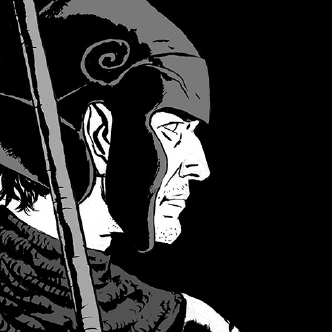The Killer - Fincher fires a blank
- Jarek Kupść

- Nov 12, 2023
- 3 min read
David Fincher’s latest outing, The Killer, made me furious. There are several ways a film can elicit such a response. Storytelling incompetence, bad acting, or blatant exploitation of an important theme are usually the main culprits. The B-movie category is generally reserved for such films, and they rarely merit critical attention. But when an A-list Hollywood director working with a top-notch team delivers a film which has no discernible point, the anger grows exponentially. Or maybe it’s just depression.

The Killer has a plot which could be outlined on a napkin. It qualifies as a revenge thriller, much in the vein of the Z-grade Steven Seagal atrocities which masquerade as entertainment. Unlike Seagal’s “work,” The Killer boasts slick cinematography and the overall production values are faultless. But that is to be expected of Fincher and his crew. After all, this is the man that gave us Se7en, The Game, Fight Club, Zodiac, and Gone Girl – all thrilling and innovative films which also spoke about larger issues.
With Mank (2020), Fincher broadened his spectrum and took huge creative risks. With all of its imperfections and inaccuracies, the film defined its point of view and held it steadfast. The story of the co-writer of Citizen Kane became a tale of finding self-respect through taking an ethical stand. The Killer is a film about nothing.

A professional assassin flubs his latest high-profile assignment. As some sort of punishment, his Caribbean girlfriend is attacked by the unhappy client. The killer is justifiably upset and goes on a retaliatory rampage all the way to the top of the ladder. The end. Granted, we have seen it before, including in a Steven Seagal “film” or ten. One would hope that in the hands of Fincher, this bare-bones premise, while lacking any thread of originality, could still serve as a pretext to explore some issues – ethical, spiritual, gosh, even economical. No such luck. Short on genre thrills, The Killer even fails as a straight action film.

As played by Michael Fassbender, the psychopathic assassin is an enigma we don’t care about. He provides an infuriatingly repetitive mantra in a monotone voice-over throughout the proceedings: “Anticipate, don’t improvise.” Well, sometimes he does, sometimes he doesn’t. “Fight only the battle you're paid to fight.” This he doesn’t. “Fate is a placebo.” What does that even mean? “The only life path is the one behind you.” Thanks, Dr. Phil.
When not subjected to the off-camera self-help aphorisms, the audience must endure long stretches of the hero waiting. Or waiting while doing yoga. Or waiting while listening to The Smiths. Which all looks very pretty, especially when the killer illuminates his secret hideout with blinding work-lights while trying not to attract any attention.

Fassbender is an actor of proven skill but no cinematic charisma. The part he plays desperately calls for someone like Alain Delon – especially when Fincher’s film draws unwarranted parallels with Jean-Pierre Melville’s infinitely superior Le Samouraï (1967). Delon, as Jef, the killer for hire, could sit still for a few minutes, or feed his pet bird, and you couldn’t take your eyes off him. There was an inherent danger present behind his eyes mixed with a sense of conflicted humanity. Delon was Death with the face of a tarnished angel. Fassbender’s face projects nothing. You don’t fear him, you don’t root for him – you simply don’t care and want to look away.

The wronged-assassin theme has been explored to far better results in No Tears for the Killer (Tecnica di un omicidio), a fairly obscure Italian B-movie thriller from 1966. Starring the charismatic and believable Robert Webber, the film allowed for proper character development and ingenious plot twists. Even George Clooney made a similar part far more compelling in the mildly enjoyable The American (2010), including the yoga poses. In the wonderfully demented Branded to Kill (1967), the Japanese maestro Seijun Suzuki took the assassin subgenre to the next level, reaching nearly surreal dimensions. And let’s not forget Jim Jarmusch’ take on Melville and Suzuki in Ghost Dog: The Way of the Samurai (1999), with its off-beat treatment of the subject. The Killer doesn’t bring anything fresh to the table, except perhaps that professional killers keep ultra-fit on a McDonald’s diet.

To quip that Fincher’s The Killer misses its mark wouldn’t be just. The film simply has no conceptual target at which to take aim. There is a ridiculous hint of redemption near the end, but asking us to empathize with a dull psychopath is like bailing out Goldman Sachs out of bankruptcy with taxpayers’ money. It just ain’t right. The Killer fires blanks at random in a soulless space with no echo.




Comments